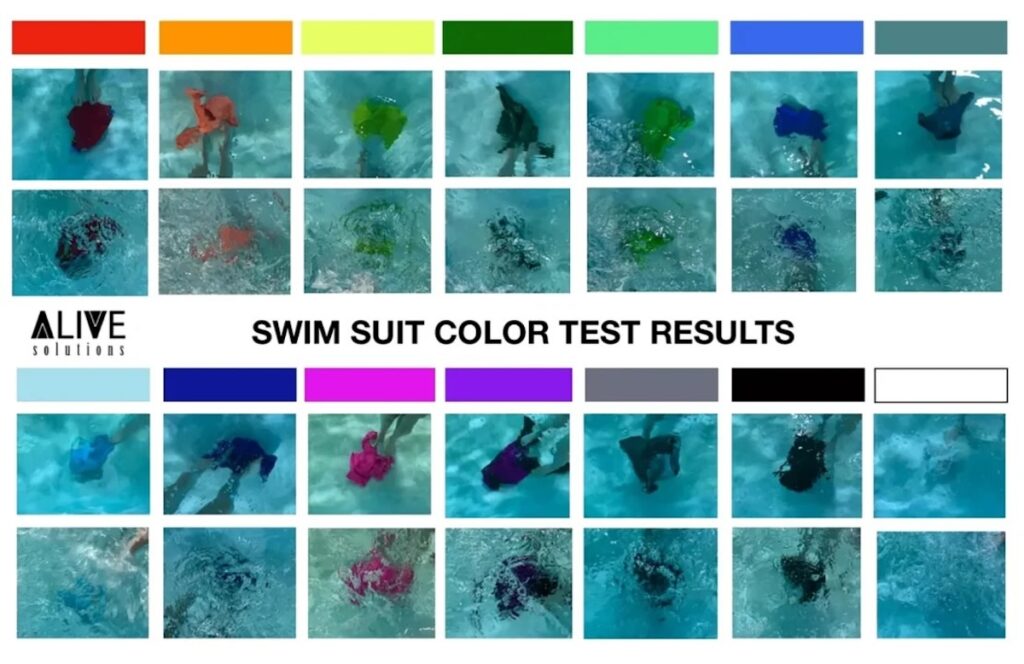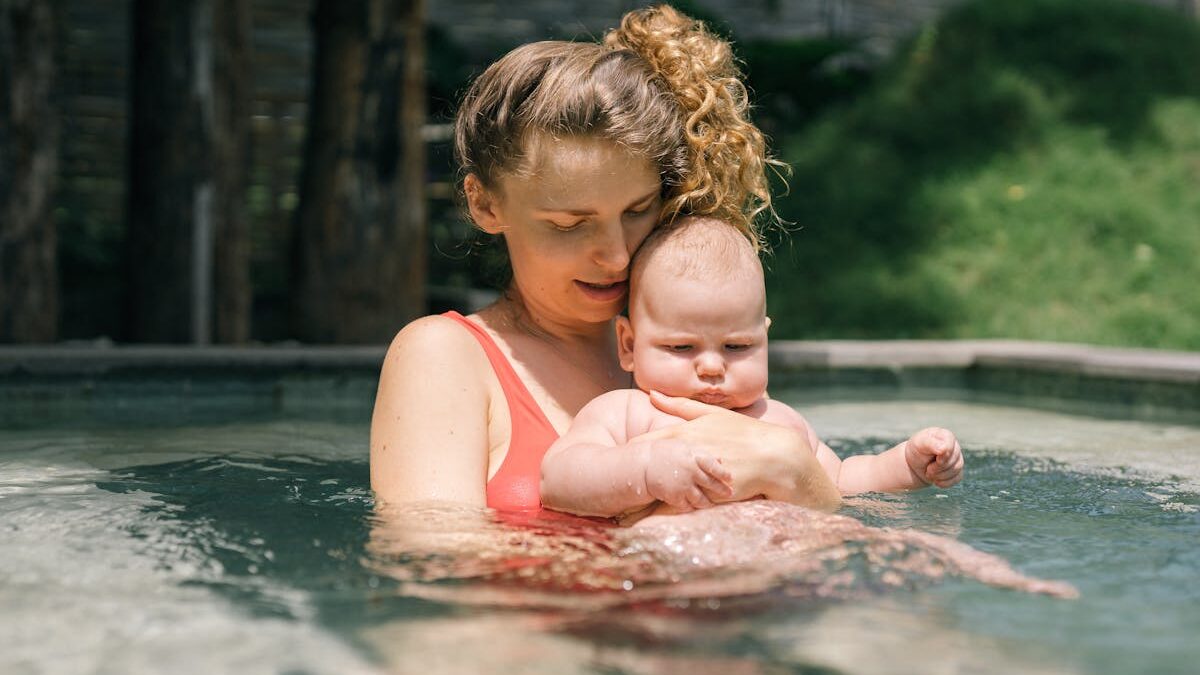Discover the perfect age to start baby swimming lessons and how early water experiences can boost your child’s confidence and development.
I was a water baby. My baby pictures often include me in our little blue tarpaulin wading pool, sitting in a bucket or playing with the garden hose. The water was my happy place. As I lived near the beach, my mum wasn’t going to risk any dangerous activities or life-threatening accidents.
My parents enrolled me in swimming lessons very early on. I loved doing the fun drills and learning how to hold my breath underwater. The funny songs made it extra special.
Not only could I swim, but I also could have fun. The early exposure meant I have been able to enjoy the water all my life. It’s also helped me know when it is and isn’t safe to go into the water.
On the contrary, I have several friends whose parents never felt swimming lessons were an important activity. My friends are terrified of the water and won’t go in past their knees.
If you want your child to gain water confidence, it’s important to start with baby swimming lessons.
An early start: Infant swimming lessons
Introducing babies to swimming at an early age offers many benefits, from enhancing water safety to boosting confidence and motor skills. Most paediatricians recommend starting baby swimming lessons at around six months old. However, there is no rule to say a baby of six weeks can’t go swimming.
For new parents, enrolling their children in a reputable swim school is a proactive step towards ensuring their child’s safety and enjoyment in the water. Many swim schools offer parent-child programs that focus on water familiarisation and basic water safety skills.
At such a young age, babies are naturally curious about their surroundings. Water play can be a fun and engaging way to stimulate their senses. These early experiences in a leisure pool help build a positive association with water, laying the foundation for future swimming abilities.
What to expect
Well-structured baby swimming lessons will typically offer programs with small class sizes, allowing for personalised attention and a safer learning environment. These programs are designed to progress gradually, starting with basic water familiarisation and advancing to more complex skills as the child grows older. This structured approach ensures that each child develops at their own pace while mastering essential swimming skills.
Parents are usually actively involved in the lessons, providing comfort and encouragement to their babies. Being involved also helps parents learn effective techniques for supporting their child’s water safety and skill development. Many swim schools offer classes for babies as young as six months, ensuring parents can start their child’s swimming education early.
The swimming journey begins with baby swim lessons and continues through to advanced swimming classes as the child grows older. Starting swimming lessons at a young age ensures a seamless transition to more advanced skills and techniques.
By three years old, many children are ready to participate in more structured swimming classes that build on the foundational skills learned in their early years. This continuous learning process helps children become proficient swimmers and instils a lifelong love for water activities. Most swimming schools also follow the school term, with options for afternoon or evening hours for busy parents
The hidden benefits of water play
Water play is an integral part of baby swimming lessons. Through playful activities like splashing, pouring and blowing bubbles, babies learn to enjoy the water and feel comfortable in it.
Water play also encourages social interaction, as babies and parents engage with other families in the swim school. This social aspect can be particularly beneficial for new parents, providing them with a supportive community and the opportunity to share experiences and tips.
Swimming is also an excellent activity for enhancing motor skills and overall physical development in babies. The resistance of water provides a gentle yet effective workout, helping to strengthen muscles and improve coordination. Through activities like kicking, reaching and floating, babies can develop their gross motor skills.

Water safety: A lifesaving skill
Water safety is a critical aspect of baby swimming lessons. Drowning is a leading cause of accidental death in children under the age of five. It is essential for parents to prioritise water safety education from a young age.
Swim schools emphasise teaching essential water safety skills, such as floating, turning, and safe entry and exit from the pool. These skills not only enhance a child’s ability to stay safe in water but also help provide parents with peace of mind.
Confidence in the water is another significant benefit of early swimming lessons. Introducing babies to water at a young age makes them less likely to develop a fear of it. Foster water confidence through positive reinforcement, gentle guidance and engaging activities that make learning enjoyable.
As children grow older, their confidence in water can translate into a willingness to participate in swimming classes and other water-related activities. Confidence is a crucial part of water safety, helping children feel competent to respond to a variety of situations in the water. It may also ensure they remain calm if they find themselves in the deep water if they know they can float or swim to the edge of the pool.
Choosing the right swim school
It is important to select the right swim school to ensure a positive experience for both the baby and the parents. Some key factors to consider include the instructors’ qualifications, safety measures, the structure of the swim program and the size of the classes.
Experienced instructors trained in infant swimming techniques and water safety will staff a good swim school. Additionally, the facility should have clean, well-maintained pools and a welcoming environment for families. Baby swimming pools should be heated to make for a more pleasant experience.
The cost of swimming lessons differs depending on where you go, but the price can be up to $600 per school term. Some may offer free pool use outside of class hours.
Short-term investment for a lifelong impact
The benefits of baby swimming lessons extend over a lifetime. Not only are there physical health and fitness benefits from being a confident swimmer, children can develop the ability to save themselves or others in water incidents.
My swimming lessons kept me safe and happy in the water over the past 30 years. It has enabled me to swim and enjoy pools, rivers and beaches all over the world.
Read next:
- 3 ways to get baby comfortable with water
- My child almost drowned: What I want every parent to know about water safety for kids
How helpful was this article?
Click on a star to rate it!
0 / 5. 0
Be the first to rate this post!
Adriana Wales
Related posts
Subscribe
Receive personalised articles from experts and wellness inspiration weekly!


